How to unhurry your life
While I don’t plan to write about every book on my 2020 reading list, I just couldn’t not share my thoughts on this one – and invite yours! My copy of The Ruthless Elimination of Hurry has been underlined, dog-eared, read aloud to John, discussed with friends, applied to my life, and recommended several times over just within my first month of reading it. Let’s dig in :)
First, a brief overview. John Mark Comer (we’ll call him JMC) sub-titled his book “how to stay emotionally healthy and spiritually alive in the chaos of the modern world.” It’s divided into three sections — the problem, the solution, and four practices for unhurrying your life — with a bonus section defining spiritual disciplines. I found it to be a pretty quick read, except for the fact that I wanted to share something aloud with John every few pages.
In the first section, JMC outlines where we find ourselves today: “throwing our lives away” as we live spiritually-mediocre days, days spent in “irritation and fear and self-preoccupation and frenzy.” He traces the rise of many compounding factors, like the disappearance of Sabbath and the explosion of smart phones, that are resulting in “hurry sickness” (the symptoms include hypersensitivity, restlessness, nonstop activity, emotional numbness, out-of-order priorities, and isolation). A quote I underlined:
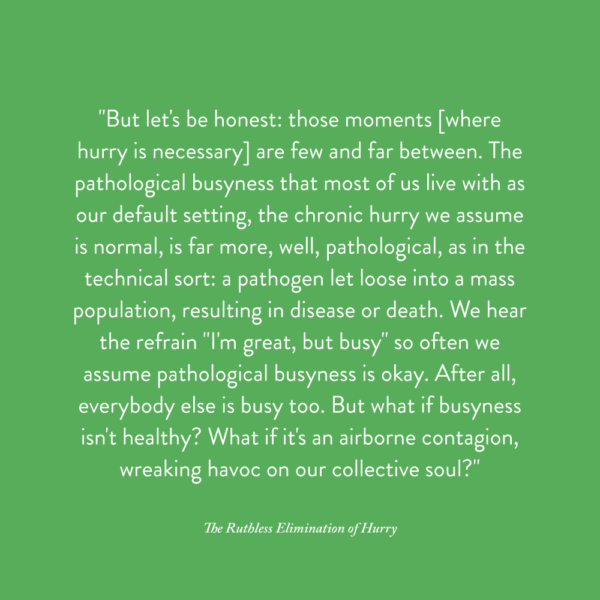
Even as I found myself nodding along with most of what JMC was writing (this is my jam!), not much of what he shared was new to me – I was already familiar with most of the trends, studies, and articles he was referencing. (And he referenced a LOT – this section almost read like a compilation of other people’s thoughts versus an original work, which felt a little cheap.) But, if the background on the “hurry era” is new to you, this section would probably be eye-popping.
Interestingly, the first section had many similarities to the infamous “millennial burnout” article, except for one glaring difference: where that article ended without positing a solution, this book does: Jesus and his easy yoke. In the second section, he writes, “the solution to an overbusy life is not more time. It’s to slow down and simplify our lives around what really matters.”
(He argues that if we all had 10 more hours in a day, we’d just fill them up with more “good” things, and then we would be “even more tired and burned out and emotionally frayed and spiritually at risk” than we are now. This rings true for me — if we don’t exercise restraint around our allotted 24 hours, why would we with 34 hours? It’s the same with our money – if we can’t manage a small amount well, why would we suddenly do better with a large amount?)
JMC’s solution to hurry is Jesus, and to organize our lives around three basic goals:
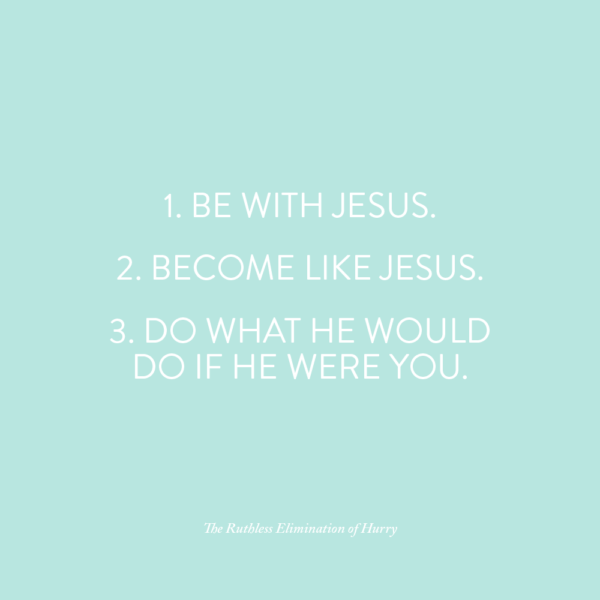
“We read the stories of Jesus,” JMC writes, “his joy, his resolute peace through uncertainty, his unanxious presence, his relaxed manner and how in the moment he was — and think, I want that life. We hear his open invite to ‘life… to the full’ and think, Sign me up. We hear about his easy yoke and soul-deep rest and think, Gosh, yes, heck yes. I need that. But we’re not willing to adopt his lifestyle.”
“That’s why Jesus doesn’t offer us an escape. He offers us something far better: ‘equipment.’ He offers his apprentices a whole new way to bear the weight of our humanity: with ease. At his side. Like two oxen in a field, tied shoulder to shoulder. With Jesus doing all the heavy lifting. At his pace. Slow, unhurried, present to the moment, full of love and joy and peace.”
If we’re willing to consider a new yoke – a fresh way to bear our responsibilities, not to escape from them – he has four suggestions in the final section. They are: silence and solitude, Sabbath, simplicity, and slowing. This section was by my favorite of the book – it was practical, challenging, and gave me lots of good ideas to try in my day-to-day. It also connected the dangers of our distracted age (of which I consider myself well aware) to my spiritual life, a connection I haven’t always made clearly:
“The noise of the modern world makes us deaf to the voice of God,” JMC writes, “drowning out the one input we most need. I mean, how do we have any kind of spiritual life at all if we can’t pay attention longer than a goldfish? How do you pray, read the Scriptures, sit under a teaching at church, or rest well on the Sabbath when every chance you get, you reach for the dopamine dispenser that is your phone?” This is why our relationships with our phones matter. It’s not only about our phones and how much we do or do not use them and what affect that has on us and the people around us. It matters because it degrades our ability to do things — really important things! — that have nothing at all to do with our phones.
Needless to say, I loved this book and will be grappling with it for quite some time. As I figure out what, exactly, it means for my own life, here is something that I’ve been turning over in my mind, and I wonder if you’ve been seeing the same.
Lately, I feel like I’ve been reading more and more about slowing and a “friction-full” (versus friction-less) life. About people choosing the analog, the stubbornly old-school, the path of most resistance. Washing your car in the driveway instead of taking it through the carwash. Walking the aisles of the grocery store instead of using InstaCart. Sitting in the cul-de-sac while your kids run around instead of running them to three different after-school activities. Shutting down Instagram for days or weeks at a time.
This mood seems a direct backlash to the rapid rise of convenience life, apps, and services that facilitate our hurry: businesses that will help us walk our dog or buy our groceries or deliver a new gadget from Amazon in 24 hours or watch something on-demand. JMC noticed it, too: “you will find more and more teachers of the way talking about the emerging practice of the spiritual discipline of ‘slowing’ as a protest against the new normal of hyperliving. Ortberg defined it as ‘cultivating patience by deliberately choosing to place ourselves in a position where we simply have to wait.'”
In the slowing chapter, JMC suggests 20 ideas for slowing down your overall pace of life, and takes some time to talk about each of them (they include driving the speed limit, getting into the literal slow lane, killing your TV, and setting times for email). I’m always game for a little social experiment and found this section thought-provoking and engaging. John, however, was generally not into it: for example, one of JMC’s suggestions is to deliberately choose the longest lane at the grocery store. He has what I think is a beautiful reason for it in the book, and it resonated with me. However, when I read it aloud to John, he thought it was kind of silly. His response: “why would I want to choose the slowest lane at the grocery store when it’s keeping me from getting home to my family/playing outside/relaxing at home/anything better than waiting in line?”
And that’s, I suppose, where I’ve landed. Modern conveniences aren’t bad or good. The slow lane is not bad or good. Inspired by JMC, the question I’ve been trying to ask myself, even in the seemingly-mundane, is “who am I becoming by making this choice?” Someone who has the space to hear from God? Someone who is more present and compassionate? Someone who indulges in curiosity and wonder? Someone who is able to sit quietly, still, and dig in the sandbox or read a book or have a conversation for an hour or two? The right choice could be ordering groceries so I can go on a walk with my kids, or it could be taking my kids to the grocery store and chatting our way through the aisles — but if I choose an answer that is as faithful as possible to what Jesus would do if he were me, then that’s the right question to be asking.
Anyway. That’s a lot of thoughts :) I acknowledge that this micro-trend of “slowing” and forgoing technological conveniences might just be an anomaly of my little social circle, but I’d love to hear what you think. Have you noticed this? Is it something you consider in your own life? Where do you fall on the convenience versus analog spectrum? As always, looking forward to hearing what you think!
Affiliate links are used in this post!








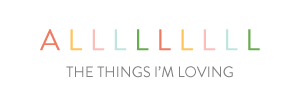
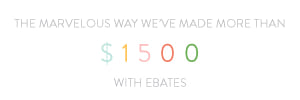


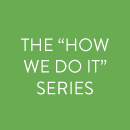
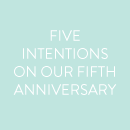
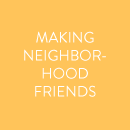

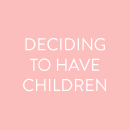


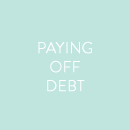
I think I’ve felt less like I need to reduce technology and modern convenience to eliminate hurry, and more like I don’t want to adopt some of these technologies in the first place – what’s promoted as a way to simplify your life often seems more complicated to me! I’d rather give a friend a check or cash if we’re splitting a bill, instead of connecting my bank account to an app to do the same thing; I’d rather just call my doctor for an appointment, instead of giving my medical information to a third-party app that will then make the appointment for me.
I do feel alone among millennial friends in this mindset. Though a couple friends do work in Silicon Valley technology startups, so I suppose it’s natural that they’d be more open to new technology – and some might consider my job in a library old fashioned :).
…so, to answer your question, I’d say I’m preeeetty far in the analog direction (though maybe not so far as to purposely choose a slow grocery lane, ha!), BUT I feel 1. that’s due more to natural inclination than to any external factor, and 2. that I’m not choosing analog over convenience, because the “convenient” option often doesn’t feel convenient to me. (Also 3. I reserve the right to change my mind :). I can picture some services that feel needlessly complicated to me now being a lifesaver if I’ve got young children in the future, for example!)
I feel similarly, Kate! For example, I tried InstaCart once, and found it much easier (and actually quicker) to just go to the store and do my own grocery shopping. And to your point about have friends who work in Silicon Valley: there are very interesting anecdotes that surface about how people who work in tech are much less likely to give their kids, for example, cell phones, because they are acutely aware of how addicting they are.
Thanks for sharing your thoughts on this! I live in a social circle that is NOT trending toward slowing down and I waver between being caught up in it or pushing back against it. One thing I feel strongly about is giving my kids time to be bored and creative and sometimes that means actively carving out time for this. There are SO many fun adventures/sports events/birthday parties that we love to do as a family but I’ve noticed that the more time we spend at home as a family, the better my kids are at playing together and playing imaginatively without a parent leading. That alone is enough to motivate me to step back and slow down. We’re jumping into kindergarten next year and I worry about how that will impact our pace of life but I appreciate this encouragement to be intentional and unafraid to push back!
I’m right there with you, Rachel! Hopefully you can find solidarity in an online circle embracing a more analog way forward! :)
Thank you so much for sharing this! I’ve been feeling a restlessness lately that I couldn’t quite put my finger on until reading this post and the linked article. I promptly ordered the book and am eager to dig in with pen in hand this weekend! :)
I hope you will love it, friend! Seems like it would be right up your alley! :)
I am enjoying it so much! I’ve made tons of margin notes and am excited to grapple with and apply what I’m learning in the coming months. So challenging but so good! :)
I guess you could say that my house, the home I share with my husband and our daughter, is slow and unhurried. The way the floors have settled and slanted overtime, giving us fun places to slide and send cars racing. The way the all wood siding needs minimal but intentional upkeep. The way our home has stood the tests of the last 110 years. I’m not sure why but your post made me think of it as another inspiration for and unhurried and slower lifestyle. I think even if someone isn’t religious or is a different religion, they can apply the teachings of Jesus and have the desire to have a life like his. That’s one of my favorite things about posts like this! We’re trying to have a slower and unhurried life by minimizing the things we have, spending as much time outside as possible, doing grocery and Target pickup (John’s response to long lines at the grocery store made me nod my head), having lots of unscheduled/unplanned time and making more thorough plans for our future. Wonderful post, Em! I so enjoy reading your thoughts.
Thank you, friend! So glad it resonated with you!
What an interesting post! I realized that I’m probably more simple in my thinking when it comes to the “convenience v. analog” thing. For example, I didn’t stop using Instacart because of a desire to slow down or get back to the basics. I stopped using it because one of the delivery people stole my groceries! And I realized I liked picking out my own produce LOL So I guess I agree with John. Some of those “analog” things might not make sense in every situation. Two things that helped me feel less hurried in my life have been 1) dropping Facebook and Instagram completely–I no longer feel like I’m missing anything or have to keep up; 2) stopped using daily planners–I love planners! But I realized I didn’t need to schedule all of the things all the time. Doing that was making me feel more pressured and hurried all the time.
You continue to be a shining example of doing what works for you and ignoring the rest, Jewel! I love it!
Such a thought provoking post, Em! This hit me hard. Definitely going to add this to my list of reads this year. Maybe for March even?! I recently went on a social media freeze (for 30 days) and the first thing I noticed was how much more time there was for me in the day. Anyway, I won’t ramble on, but thank you for this!
Rambling is always welcome here, ha! Yes, it’s kind of astonishing what can be accomplished in even half an hour, whereas when you’re scrolling on your phone a half hour seems to pass in the blink of an eye!
You’ve inspired me to try this book out. As an author, I need to be very in touch with my imagination + hearing from God to create, and it’s been increasingly harder to do with all of the “noise.” I’m definitely going to read this book and see if it helps at all!
This is such an interesting point, India! I wrote a lot of poetry in high school and college (my honors thesis was an original collection of poetry!) and I noticed something kind of similar: in a semester when I had a very fact-based class, like AP Bio or Stats, it was much harder for me to access the creative part of my brain – it was almost like there wasn’t enough room to generate creative ideas with all the information floating around!
I definitely think the desire to slow down is on the rise. It also might be a privilege of the white middle class. I also think it’s fine to say that the internet/phones and that it comes with is bad. It might be necessary and unavoidable but I think we don’t need to shy away from saying that it’s mostly produced evil. I’m thinking here of things like the environmental implications of phone production and Amazon deliveries, the effects of internet pornography, our ever decreasing attention spans and children’s learning abilities. So many schools now use computers and iPads as a regular tool for education, and it has really influenced my decisions for what school will look like for my son. My comment is more about technology I know, but I think it is directly related to always hurrying.
Emily, if you have never read Wendell Berry I think you would love him. He has amazing non-fiction, fiction, and poetry. Maybe start with his poetry or fiction. In many ways I think the arts can be a good antidote to business. It takes time to sit and enjoy something know you might not be learning or gaining anything obviously practical. I know sometimes I can spend so much time trying to figure how to do things better when all I have to do is stop researching and just do it.
Hi Heather! Lots to unpack here! I agree that there is an interesting intersection with privilege here – both in the ability to access these conveniences (having the money to do so) and the ability to make the decision to forgo them (having the time to do so). I talked a bit about my thoughts on technology in schools in my post on choosing a daycare, but I completely agree – so much of the technology used seems not only unnecessary, but detrimental. Finally, I love Wendell Berry :) Looking at a book of his poetry on my shelf now!!